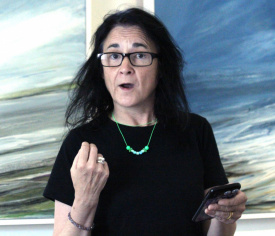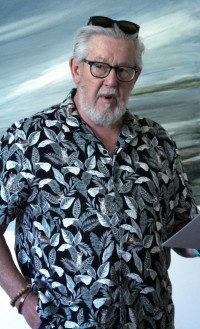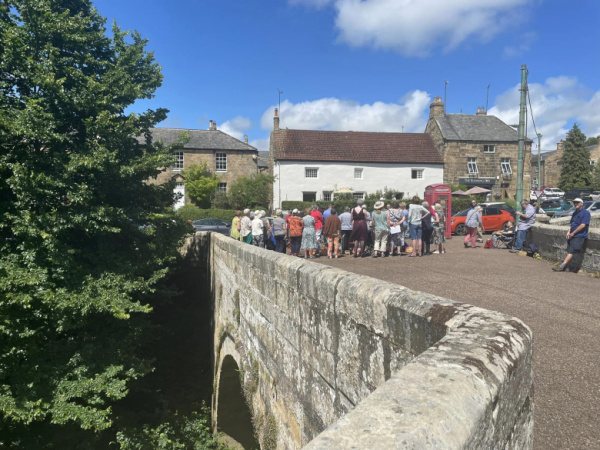Not Glastonbury, but … finding poetry at a village festival just up the road

It was the weekend of Glastonbury. But unaccountably we took a wrong turning, and ended up just five miles away in the next village to ours, at an event called Feltonbury instead. It’s been staged in the Northumberland village of Felton for a number of years, and includes music, art, and even some poetry.
On a blissfully warm day you could find some shade in the Poets Café, within the village’s art gallery, where six local - ie north-east poets - performed during the afternoon. Before they began, however, a band was commencing their set in the gallery courtyard. I was astonished and delighted to find them opening with the title track of Sgt Pepper – a nod, perhaps, to the Beatles vibe represented on the Feltonbury festival logo.
That Beatles vibe continued during the set of the final poet of the day, Aidan Clarke, whose poem ‘Empty Nest Syndrome’ refers to another song on the Sgt Pepper album, She’s Leaving Home, which looks at both the pain and the right thing of young leaving the nest. It ends: “She’s leaving home, bye bye, / is ultimately/ painfully, / amazingly / a triumphant cry.”
I hadn’t come across Aidan Clarke before. He’s difficult to summarise. If I was having a stab at it, I would say surreal humour. But he’s more than that. ‘London Fire’ finds him walking backwards through history, from a fish and chip place in Paddington, “between Tyburn Tree / and the discovery of penicillin” towards the Great Fire of London:
The Great Fire of London Walk is easy.
First you burn with love for the tumultuous city.
Then you walk slowly through the hopes and fears
of all the years.
He marvels at the migration of birds –“This is the last time / I go on holiday with my mother” (‘Flying South for the Winter’), and ‘The poetry of pottery’ – “once broken / the pieces are indestuctible”. He ends the pottery poem by saying “Here’s a fragment of my soul,” a phrase he repeated in the inscription of my copy of his collection Poems for No One.


Whitley Bay’s Steve Lancaster is a master of wordplay, with a penchant for erotic poetry, sometimes with odd connections. Thus the noted Lake District fell walker Alfred Wainwright pops out in a poem about bodily rambles and explorations, and another laced with come-hither language turns out to be about a habit made notorious by Tory Iain Duncan Smith when he was caught at it on camera on the backbenches of the House of Commons. Picking your nose, Steve’s talking about.

A late addition to the line-up was Olya Bowers, who opened with a passionate cry: “I can’t stand a poet who rants”, and also told a long story about meeting one of American’s leading Communists, who had shaken the hand of Trotsky, Lenin, Stalin, and Mao, and another chap who had gripped the hand of Neil Armstrong, first astronaut to walk on the Moon. Olya regarded it as her own claim to fame, in a way - and fair enough.
The poetry event’s organiser Ian Williams had been listed to perform, but nobly stepped aside for Olya, although he did deliver one poem at the end, by popular demand. By that time the Poets’ Café had filled up nicely. I stepped outside, into the blazing sun, and rejoined my missus in the main music arena, where hundreds of folk were gathered to enjoy a succession of bands.
Remarkable to look at this picturesque village, apparently well off the beaten track, and reflect that until recent decades the A1 used to thunder through here. It may not be on the main road any longer, but Feltonbury is certainly a destination that we’ll be returning to next year.

Listening to festival buskers on the old bridge at Felton Photograph: Gillian Freeman




